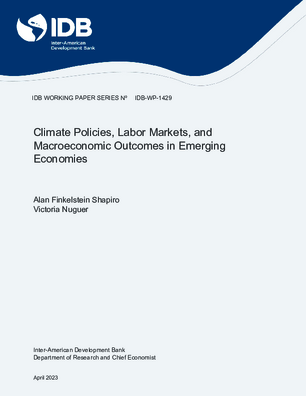Climate Policies, Labor Markets, and Macroeconomic Outcomes in Emerging Economies
Date
Apr 2023
We study the labor market and macroeconomic effects of introducing a carbon tax in the energy sector in emerging economies (EMEs) by building a framework with equilibrium unemployment and firm entry that incorporates key elements of the distinct employment and firm structure of EMEs. Our model endogenizes the adoption of green energy-production technologies--a core element of policy discussions regarding the transition to a low-carbon economy. Calibrating the model to EME data, we show that a carbon tax fosters greater green technology adoption and increases the share of green energy produced. However, the tax leads to higher energy prices, which reduce salaried firm creation and formal employment and increase self-employment, labor participation, and unemployment. As a result, the tax generates output and welfare losses. Green technology adoption plays a key role in limiting the quantitative magnitude of these losses, while the response of self-employment is crucial to explaining the adverse labor market and macroeconomic effects of the policy. Given this finding, we show that a carbon tax coupled with a plausible reduction in the cost of becoming a formal firm can offset the adverse effects of the tax and generate a transition to a lower-carbon economy with minimal economic costs. Finally, we show that lowering green-technology adoption costs or the cost of green-energy production inputs--two alternative climate policies--reduces emissions while limiting the output and welfare costs compared to a carbon tax.
Generative AI enabled





